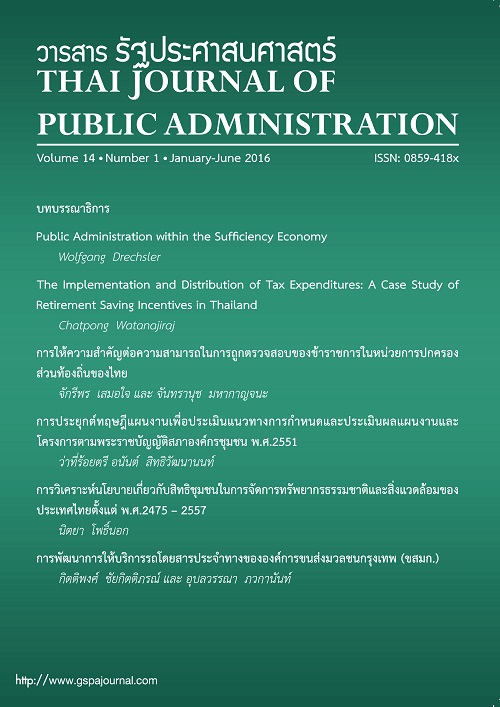The Implementation and Distribution of Tax Expenditures: A Case Study of Retirement Saving Incentives in Thailand
Keywords:
Tax expenditures, policy implementation, retirement savingsAbstract
Tax incentives can be perceived as a policy tool to encourage targeted citizens to exhibit desired behavior in exchange for the benefits of tax reduction. Such practice, commonly referred to as tax expenditure, costs the government in terms of forgone tax revenue. The research suggests that tax expenditure policy should be used with caution. Since the policy is not attractive to non-taxpayers, implementation may be derailed if the proportion of taxpayers is too small compared with the target. Using the private sector relieves the government from administrative tasks. However, policymakers should be aware that the private sector may not always commit itself to policy objectives. The targeted citizens may be discouraged from joining the program if they have insufficient savings or prefer other tax-privileged programs. In addition, tax benefits are claimed mainly by high-income groups owning to the nature of the progressive tax system, rather than to differences in saving capability.Downloads
Published
2016-07-01
How to Cite
Watanajiraj, C. (2016). The Implementation and Distribution of Tax Expenditures: A Case Study of Retirement Saving Incentives in Thailand. Journal of Public Administration, Public Affairs, and Management, 14(1), 39. retrieved from https://so05.tci-thaijo.org/index.php/pajournal/article/view/62232
Issue
Section
Articles



